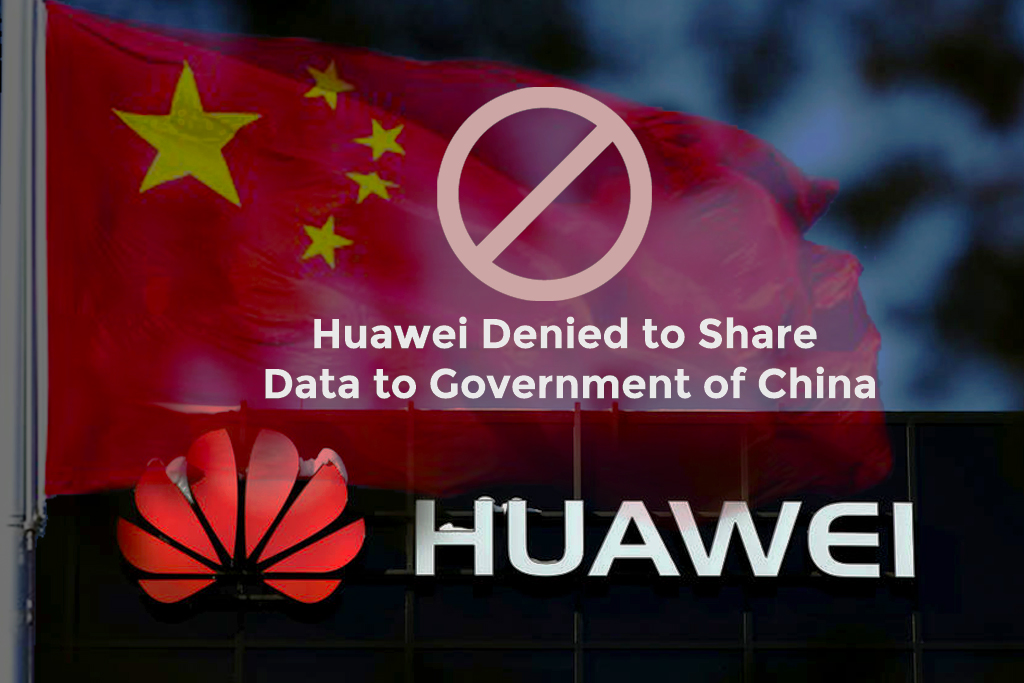Huawei officially declined to give the network data to the Chinese Government. However, experts said that if Beijing demands the network data from Huawei than they have no choice to hand over it to China’s Government because of national security and intelligence laws of the country.
On the other hand, main governments containing Japan, Australia, and the United States stopped the equipment’s of Chinese telecommunications maker to provide hardware for 5G mobile networks (next-generation). The United States blamed that Huawei equipment could give the Chinese government backdoors into the networks of America, whereas, Huawei once again denied the blames against their company.
Australia to Warn Companies not to conflict with Australia Law
Australia on the other side did not mention the specific companies or countries, though it gave direction to domestic carriers last year. By providing the statement that the foreign vendors are likely to be a theme to extrajudicial directions that conflict with the law of Australia, might lead to the failure through the carrier to adequately save a 5G network from unauthorized interference or access.
A concern on the best of minds of numerous governments is high lightened by the Australian government, China’s extensive ranged internet laws, which need technology firms to support Beijing with imprecisely-defined intelligence work. Means that the companies could be mandatory to provide network data whether they wish or not.
Article seven of the 2017 National Intelligence Law
The National Intelligence Law of 2017 and the Counter-Espionage Law of 2014 are two pieces of legislation which have a specific concern to governments. According to Article seven of the 2017 National Intelligence Law, any organization, firm or citizen shall assist, support and collaborate with the intelligence work of the state in accordance with the law. It also tells that the state assures the security and protection of the organization or firm that aids it.
It is also clear that the firm or a specific person don’t have an option when it is trying to help the government. Whereas, according to the 2014 Counter-Espionage Law, when the security organ of the state investigates and realizes the condition of the espionage and gathers evidence related to it, the related individual or the organization shall deliver it honestly and may not refuse to cooperate.
Backdoors will not build – Huawei
The company Huawei reflects that it will not deliver any its customer data to any state and they have never been requested to do so. Ren Zhengfei is a billionaire and founder of Huawei, he himself and several other senior executives of the company told that Huawei would not build any type of backdoors and deliver the customer data to the state. Another Huawei spokesperson of Huawei stated that they have never been mandatory to do so. They are not going to risk on possible future scenarios outside repeating the comforts of most senior management of the Huawei.
Huawei’s founder Ren specified that the company would never back China spy against the US even if the law demands. He said that they neither involved in espionage and they didn’t allow any employee to do like this. Similarly, they never built or installed any type of backdoors. Even if the Chinese Law asks to do so, they will definitely reject that.
International when tried to communicate with the sources in China but they refused to comment on the current scenario. But according to the opinions of the experts from outside the country, it is almost impossible for the organization to decline the request of sharing the data with Beijing if asked.
There is no option for Huawei to negate any Government’s order
A New York University law professor and Council of International Relations adjunct senior colleague, Jerome Cohen gives his statement to international media that there is no option for Huawei to negate any order from the Chinese Communist Party or the People’s Republic of China Government to do its bidding in any commercial or context. Huawei would compulsory to hand over all the demanded data and have to perform all other surveillance actions which needed.
Whereas, Cohen is practicing attorney signified commercial clients in China or anywhere in other regions of Asia. Furthermore, he said that the fact is not only authorized by existing legislation, but the critical side is that it also mandated by the organizational structure, political reality, and procedure of the Party-State’s economy. The party rooted in Huawei and controls it.
Questions are raising about the connection between the government and the Huawei because the past of the Ren is as an ex-soldier in the People’s Liberation Army and a present member of the Communist Party. In January during the question and answer session of Ren with international media, he said that his relations with the ruling party of China would not stop him from rejecting any demand from them for sharing the user data. Also, he expressed that he didn’t perceive a close association between his political, personal belief and their actions of business that they are going to take as an entity of business.
Zen Preferred to Shutdown Huawei
In the same session of questions and answers, Zen said that if he enforced to provide the customer’s data (in other words damage the customer’s interests), then he preferred to shut down his company Huawei.
Martin Thorley, the expert on global engagements with China at the United Kingdom-based the University of Nottingham told the international news website that the impression of fighting an appeal of this nature in the courts is not genuine. In actual, the law only approves what has long been true, that one must refer to the party if demanded. Moreover, he also states that a big company like Huawei, doing their duties in a sensitive sector, cannot be smooth or successful in China only if the company has deep links with the party.
He added more than at Huawei for anyone to decline a serious appeal from the party would need bravery bordering on thoughtlessness what anyone can do when his adversary is the media, the government, the police, and the judiciary.
The dominance of China in the 5G
A geopolitical analyst said that the clash between the Huawei and the United States is higher than fears above national security risks. It only regards about who has the mechanism of the actual infrastructure that supports and runs 5G.








